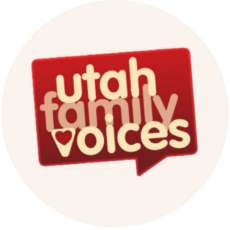
Raising Mental Health Awareness: Supporting Loved Ones This May
Mental health challenges can impact everyone, regardless of ability. People with disabilities are at a higher risk of developing these mental health challenges than the general population. Living with a disability can be difficult, and it can have an impact on our mental health. As a result, it is critical for families to understand the unique obstacles that their loved ones encounter and how they may support them.
Some common mental health issues arise from various factors, including social isolation, bullying, lack of accessibility, discrimination, and physical pain. Families can provide support to their loved ones with disabilities by creating a supportive environment by fostering their mental well-being. One way to do this is by encouraging social activities and participation in community events. This helps reduce isolation and improve social connections.
Another way to support someone with a disability is to encourage them to seek or facilitate professional help when necessary. Mental health professionals can provide therapy, medication, and support in managing their symptoms.
Families can also provide practical support, such as making their home more accessible, providing transportation, or assisting with daily tasks. This can help reduce stress and anxiety, making it easier for their loved one to focus on their mental health.
It’s also essential for families to be aware of the signs of mental health issues and to address them early. Symptoms to watch for include changes in mood, behavior, and sleep patterns, difficulty concentrating, and loss of interest in activities they once enjoyed.
Finally, remember to practice self-care to avoid burnout and stay emotionally supportive. Taking care of yourself can make it easier to support a loved one with a disability.
In conclusion, mental health issues in people with disabilities are common, but families can play a crucial role in providing emotional, practical, and social support to their loved ones. Foster a supportive environment by being aware of the signs of mental health challenges and if needed, encourage reaching out to a mental health professional. By being proactive, families can help their loved ones with disabilities live fulfilling and meaningful lives.
Remember, our parent consultants, in the Utah Family Voices project, are ready to assist you. At the same time, you navigate related information and can provide referrals to help you identify the best resources for you or your loved ones. You may also check out this list of mental health providers for a range of services in advance.
The Neurobehavior HOME program is a coordinated healthcare model and center of excellence for meeting the medical and mental health needs of people with developmental disabilities (children and adults.)
The Medical Home Portal is a resource for professionals and families who care for children and youth with special health care needs (CYSHCN) and want to achieve the best possible outcomes for their health, well-being, and success.
The Behavioral Health Programs at Primary Children’s Hospital offer a team of professionals to help understand your child and family’s unique, individualized needs.






